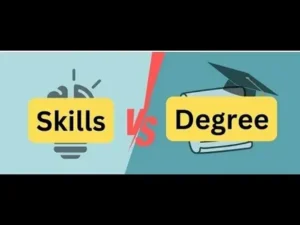If you have been paying attention to hiring trends, personal development buzzwords, or even casual workplace conversations, you’ve probably noticed something interesting: soft skills are having a moment. No, scratch that; they’re having a massive boom.
For the longest time, hard skills, those technical, teachable abilities, ruled the job market. But things have shifted dramatically. Today, companies are waking up to a powerful truth: while hard skills can get your foot in the door, it’s your soft skills that keep you in the room, build your reputation, and unlock new doors.
This post will dive deep into why soft skills are exploding in relevance, what they really mean in today’s world, how they influence your career and life success, and, most importantly, how you can build them intentionally without feeling like you’re faking it.
We’ll also tackle the big FAQs people ask about soft skills straightforward, no fluff. Let’s go.
What Exactly Are Soft Skills (And Why Do They Matter More Now Than Ever)?
Let’s clear the fog first. Soft skills are the non-technical, human-centric abilities that define how we interact, communicate, solve problems, and manage ourselves in different situations. They are sometimes called transferable skills or employability skills. We’re talking about things like:
- Emotional intelligence (EQ)
- Active listening
- Adaptability
- Problem-solving
- Empathy
- Teamwork
- Conflict resolution
- Time management
- Creativity
These aren’t fancy buzzwords—though the corporate world loves to treat them like they are. These are fundamental life skills that can make or break careers, businesses, and even relationships. And while these skills have always mattered, what’s changed is their urgency in today’s evolving, tech-saturated, hyper-connected world.

Why Are Soft Skills Booming Now More Than Ever?
We live in an age of disruption. AI is writing emails. Robots are assembling products. Algorithms are predicting consumer behaviour.
Yet, even as technology accelerates, there’s a critical gap that no machine can fill; the human touch.
Let’s break down why soft skills are booming and why they’re no longer optional but essential.
1. Automation and AI Are Replacing Hard Skills, Not Human Skills
Thanks to AI and automation, many technical, routine, and repetitive tasks are being streamlined or outright eliminated. From accounting tasks to logistics planning, hard skills are becoming easier to automate.
But guess what can’t be automated?
The messy, emotional, nuanced work of leading people, navigating conflicts, listening with empathy, building trust, and fostering creativity.
These human-centric skills are your ultimate competitive edge in the workplace of the future, and organisations are finally waking up to the fact that what makes businesses thrive isn’t just technical output; it’s how people feel, connect, collaborate, and innovate together.
2. Remote and Hybrid Work Have Made Communication and Collaboration Even Trickier
The global shift to remote and hybrid work has exposed a painful truth: those who can’t communicate effectively or manage relationships virtually struggle more than ever.
Soft skills like:
- Clear, empathetic communication
- Emotional intelligence in virtual spaces
- The ability to build rapport and connection through a screen
- Managing virtual teams with trust and autonomy
…have gone from “nice-to-haves” to “must-haves.”
Without these skills, teams feel disconnected, conflicts escalate silently, and collaboration crumbles.
In fact, studies have shown that remote employees with strong soft skills report higher levels of engagement, productivity, and belonging, because they know how to bridge the digital divide with human warmth.
3. Globalization Has Made Cultural Intelligence and Empathy Non-Negotiable
We’re no longer working in neat little local teams.
We’re working with people from diverse cultures, backgrounds, time zones, and perspectives.
That means cultural intelligence, open-mindedness, empathy, and diplomacy are now baseline skills for anyone looking to succeed on a global stage. A joke that works in New York might offend someone in Tokyo.
A leadership style that motivates in London might feel cold and impersonal in Nairobi.
Soft skills help you navigate these nuances without stepping on landmines.
They help you ask questions, listen deeply, honour differences, and build inclusive teams that thrive across borders.
4. Burnout and Mental Health Crises Have Made Emotional Intelligence a Critical Leadership Trait
We’re in the middle of a global burnout epidemic.
The pandemic didn’t just change how we work, it changed what we expect from work. People now demand psychological safety, empathy, and emotional awareness from their leaders.
Leaders who can’t read the room, support their teams emotionally, or handle stress with grace are losing their influence fast.
Soft skills like
- Emotional self-regulation
- Active listening
- Compassionate feedback
- Vulnerable leadership, etc., are now the hallmarks of modern leadership, and employees are voting with their feet, flocking to workplaces where leaders show up not just as bosses but as humans who get it.
A report by LinkedIn identified soft skills as the number one priority for talent development globally.
Similarly, the World Economic Forum’s Future of Jobs report continues to rank creativity, emotional intelligence, and critical thinking among the top skills for the future workforce.
Companies that ignore this shift do so at their own peril.
In contrast, individuals who double down on developing their soft skills future-proof themselves, no matter how technology evolves.
Soft Skills Are the Superpower of the New Work Era
In a world obsessed with data, speed, and digital transformation, it’s easy to think that technical expertise is all that matters.
But here’s the raw truth:
Soft skills are your secret weapon.
They make you irreplaceable, magnetic, and impactful in ways no degree or technical certificate ever can.
They’re what make people want to work with you, promote you, trust you, and remember you. Unlike hard skills that can quickly become outdated, soft skills are timeless. They travel with you across industries, roles, and life stages, always adding compound interest to your personal and professional growth.
So if you want to stay relevant, lead meaningfully, and build a career (and life) you love, bet big on your soft skills.
Why Soft Skills Are Harder to Learn And Why That’s Actually a Good Thing
Here’s something many people won’t tell you:
Soft skills are harder to learn than hard skills. And that’s not a bad thing. Let’s unpack that.
Soft Skills Are Not Linear. They’re Layered and Context-Driven
Unlike hard skills, which often follow a clear, linear path (think coding, bookkeeping, or data analysis), soft skills live in the messy, unpredictable realm of human behaviour, emotions, and relationships.
You can’t learn empathy from a textbook and call it a day.
You can’t attend a weekend workshop on leadership and suddenly become a people-first manager.
Soft skills evolve through
- Self-awareness and reflection
- Trial and error
- Ongoing feedback loops
- Real-world, high-stakes situations
They’re layered. They change depending on context, culture, and personal experiences. And they require you to constantly check your biases, adjust your tone, tune into others, and stay humble.
This is why many professionals find soft skills uncomfortable.
They demand vulnerability, openness, and the willingness to admit you don’t always have the right answers.
But that’s where the magic lies.
Because when you commit to mastering soft skills, you embark on a lifelong journey of personal evolution.
Soft Skills Can’t Be Fully Automated or Outsourced
The fact that soft skills are harder to learn is precisely why they are so valuable and future-proof.
Anyone can learn to use AI tools to generate reports or analyse data.
But only humans can read the unspoken dynamics in a tense client meeting.
Only humans can sense when a team member is quietly burning out.
Only humans can bring humour, warmth, and empathy to a challenging negotiation.
This means that those who invest in soft skills position themselves in a league of their own, untouchable by automation.
Soft Skills Require Emotional Courage (Which Most People Avoid)
Soft skills have a way of holding up a mirror to yourself. They ask you to pause, reflect, and get brutally honest about who you are beyond your technical abilities. I remember taking some professional courses where it was almost second nature to assess my proficiency in hard skills: tick the boxes, measure the metrics, and move on.
But when it came to evaluating my soft skills, it wasn’t that straightforward. It felt more personal, more vulnerable. There were no easy checklists, only introspection. Hence that’s what makes soft skills so transformative. They push you to face yourself, not just your work.
To improve your listening, you must first admit you interrupt people.
To become more adaptable, you have to confront your fear of change.
To build empathy, you must set aside your ego and step into someone else’s shoes.
That takes emotional courage and most people would rather stay in their comfort zones.
Which is exactly why soft skills are a competitive advantage.
They’re rare not because they’re inaccessible but because most people are not willing to do the inner work they demand.
How the Boom of Soft Skills Is Reshaping the Job Market and Leadership
We’re witnessing a massive shift in the workplace DNA, and it’s not driven by technology alone.
It’s fueled by a deeper, more human transformation: the rise of soft skills as leadership essentials and career accelerators.
Here’s how this boom is rewriting the rules of the job market and leadership in real-time.
Recruiters Are Now Screening for Soft Skills First
Let’s be honest: Hard skills can get your foot in the door, but soft skills keep you in the room.
In fact, many forward-thinking companies are flipping the traditional hiring script.
They’re prioritizing soft skills like adaptability, communication, and collaboration in interviews, often before they even look at your technical portfolio.
Why?
Because technical skills have a shelf life.
But someone who can communicate with empathy, handle feedback gracefully, and stay calm under pressure?
That’s gold. Even in highly technical roles, employers are asking questions like:
- “Tell me about a time you handled conflict in a team.”
- “How do you manage stress and deadlines?”
- “How do you adapt when a project scope suddenly changes?”
They know that in a fast-paced, ever-evolving market, the ability to adapt, collaborate, and problem-solve in ambiguous situations is more valuable than any static skillset.
Leaders Without Soft Skills Are Being Left Behind
The age of command-and-control leadership is over.
Today’s employees expect more than a boss who can bark orders and hit KPIs. They want leaders who can listen, inspire, coach, and build psychologically safe spaces.
In fact, studies show that leaders with high emotional intelligence (EQ) drive higher employee engagement, lower turnover, and better business outcomes.
Leaders who lack soft skills like empathy, vulnerability, or conflict resolution are finding themselves:
- Struggling to retain top talent.
- Falling behind in innovation.
- Being called out for toxic leadership styles.
The new era of leadership is human-first. It’s about facilitating, not commanding. It’s about leading with heart, not just a spreadsheet.
Soft Skills Are Creating New Job Roles and Career Paths
The soft skills revolution isn’t just changing how we work, it’s creating entirely new career paths.
Roles like:
- Employee Experience Manager
- Chief People Officer
- Diversity & Inclusion Consultant
- Wellbeing Strategist
- Change Management Specialist
These jobs didn’t even exist a decade ago.
But they’re now critical in organizations that understand the value of culture, engagement, inclusion, and psychological safety.
Even in tech-centric industries, we’re seeing a rise in roles that blend human-centric skills with technical know-how.
Think Tech Evangelist, Innovation Facilitator, or Agile Coach.
Soft skills are no longer “nice to have.” They are career accelerators, leadership currencies, and market differentiators.
How to Build and Strengthen Your Soft Skills
Now that we’ve unpacked the why, let’s get into the how.
Let’s face it, soft skills are not learned overnight. They are not certifications you frame on your wall.
They’re lived, practiced, stretched, and refined over time through real-world experiences, honest reflection, and, yes, sometimes, awkward trial and error.
So how can you build these all-important skills in a way that doesn’t feel forced or superficial?
Here’s how I (and many professionals I’ve worked with) have found to strengthen soft skills sustainably:
1. Start With Self-Awareness
Let’s not sugarcoat it: You can’t improve what you don’t acknowledge.
Self-awareness is the heartbeat of all soft skill development. It’s about being able to assess yourself with honesty: not judgment, but curiosity.
- How do you react under pressure?
- Are you a patient listener, or do you jump in too soon?
- What triggers your frustration or defensiveness?
- How well do you handle feedback especially the uncomfortable kind?
Tools like journaling, 360-degree feedback, personality assessments (like MBTI or DISC), or even candid conversations with trusted peers or mentors can crack open blind spots.
This step is never really done and over. Self-awareness is an ongoing, lifelong practice. The more you lean into it, the sharper your emotional intelligence becomes.
2. Embrace Micro-Moments to Practice
A mistake I see often?
People wait for big opportunities to practice soft skills, like a promotion, a client presentation, or a leadership summit. But soft skills are honed in the micro-moments of everyday life:
- Holding space for someone to finish their sentence instead of interrupting.
- Acknowledging a teammate’s effort publicly (even when you’re busy).
- Offering constructive feedback gently during a tense conversation.
- Staying present during a meeting instead of mentally rehearsing your reply.
Think of these as “reps” at the gym of self-awareness. Small, consistent actions compound over time into noticeable growth.
3. Seek Diverse Experiences
Want to build empathy, adaptability, and cultural intelligence?
Get out of your bubble.
Soft skills aren’t just polished in familiar, comfortable settings. They thrive when you step into environments that challenge your worldview.
Volunteer. Mentor someone outside your field. Join cross-functional teams. Attend workshops in areas you know little about. These experiences force you to listen more, judge less, and stretch your comfort zone. Ttrust me, they’ll humble you in the best ways possible.
4. Get Comfortable With Discomfort (It’s Where Growth Lives)
Here’s something I had to learn the hard way: Soft skill growth is rarely comfortable.
It requires:
- Owning your mistakes.
- Having tough conversations you’d rather avoid.
- Admitting when your approach isn’t working.
- Staying curious when your ego wants to shut down.
Furthermore, every uncomfortable interaction is fertile ground for developing emotional maturity, patience, resilience, and grace under pressure.
If you find yourself avoiding discomfort? That’s a flashing sign to lean in, not pull away.
5. Be Open to Feedback
Feedback isn’t always easy to hear, but it’s pure gold when it comes to soft skills.
Ask your team, your manager, your friends:
- “How do you experience me when we’re working under stress?”
- “Is there a way I could communicate more effectively?”
- “Where do you feel I could show more empathy?”
Approach feedback as a gift, not a personal attack. And when it stings? That’s your opportunity to pause, reflect, and recalibrate.
6. Find Mentors or Coaches Who Embody the Soft Skills You Admire
It’s one thing to read about soft skills. It’s another to see them modeled by someone you respect.
Seek out mentors, leaders, or coaches who embody the emotional intelligence, patience, grace, and communication you want to develop. Observe how they handle conflict. Notice how they listen.
Learn how they manage their emotions in high-stakes situations.
Better still, ask them how they got there. Most will tell you it wasn’t by accident.
7. Make Reflection a Ritual, Not an Afterthought
I knew someone who used to react impulsively whenever they were triggered, like a spark to dry grass, they’d flare up instantly. But over time, I began to notice a shift. Their responses became calmer, more measured, almost graceful. My curiosity got the better of me, so I asked what changed. They smiled and let me in on their secret: daily reflection.
Reflection turns everyday moments into learning laboratories.
It keeps your growth intentional, not accidental.
At the end of the day (literally), carve out 5-10 minutes to reflect:
- What conversations went well?
- Where did you feel triggered, reactive, or defensive?
- How did you manage your energy?
- What small win can you celebrate today?
When you make this a daily ritual, self-awareness becomes a second nature and you will be happier for it.
8. Be Patient With Yourself
Building soft skills is more like gardening than engineering.
You plant seeds. You nurture them daily. You won’t see results overnight.
But over months and years, the roots grow deep and the fruits show up in how people experience you.
So be patient.
You don’t have to become a master communicator or conflict resolver tomorrow.
Focus on getting 1% better every day. That’s how you build soft skills in a sustainable, reliable way that doesn’t feel like an exhausting self-improvement race.
Soft skill: The Superpower You Can’t Ignore
In conclusion, if there’s anything the past few years have taught us, it’s that the real competitive edge, the kind that can’t be automated or outsourced, is deeply, inherently human. Soft skills are no longer optional extras, they are the backbone of modern leadership, teamwork, and career success.
You don’t need a fancy degree, expensive certification, or years of experience to start building them.
You just need the courage to look inward, the curiosity to learn from others, and the humility to practice again and again.
The boom of soft skills isn’t really about skills at all. It’s about becoming a better human, one interaction, one conversation, and one reflection at a time.
As a young professional trying to stand out in a crowded job market, a manager leading hybrid teams, or an entrepreneur wanting to build meaningful client relationships, or you are someone just trying to lead a more fulfilling personal life, now is the perfect time to double down on your soft skill journey. Not just because they’ll make you more employable, but because they’ll make you a better, more adaptable, more impactful human being.
Stay frosty.




